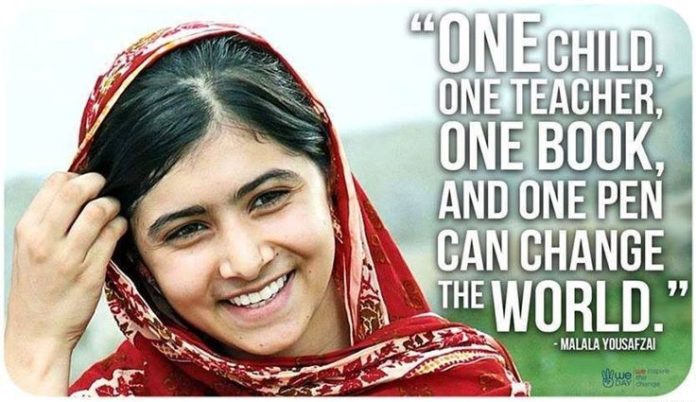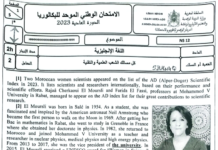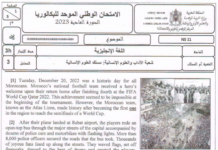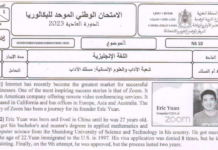The exam’s Comprehension Text
[1] Malala Yousefzai, the youngest Nobel Prize winner, was born in July 1997 in Mingora, a small village in Pakistan. During the first few years of her life, her hometown was famous for its summer festivals. However, the area began to change as Taliban group tried to take control. At the age of 7, Malala attended a school that her father had founded. After many school attacks had occurred in her village, Malala gave a speech in Peshawar, Pakistan, in September 2008 to defend girls’ rights to education.
[2] In early 2009, Malala began a blog for the BBC writing about the risks that girls in Pakistan face when they go to school. She was using the nickname Gul Makai to hide her identity. With a growing public platform, she continued to speak out about her right and the right of all women to education. She was so active that she was nominated for the International Children’s Peace Prize in 2011. That same year, she was awarded Pakistan’s National Youth Peace Prize.
[3] When she was 14, Malala and her family learned that an extremist group was planning to kill her. On October 9, 2012, on her way home from school, a gunman got on her school bus and fired at her. He hit her in the left side of her head. Two other girls were also injured in the attack. The shooting left Malala in a critical condition, so she was flown to a military hospital in Peshawar. As her injury needed special treatment, she was transferred to Birmingham, England.
[4] After the attack Malala received a lot of support, which continued during her recovery. On her 16th birthday in 2013, she gave a speech at the United Nations. She also wrote and published her autobiography in October of the same year.
[5] Despite the threats to end her life, Malala continues her fight for education. On October 10, 2013, in acknowledgement of her work, the European Parliament awarded her the Sakharov Prize for Freedom of Thought. That same year, she was also nominated for the Nobel Peace Prize.
[6] In October 2014, Malala received the Nobel Peace Prize, along with Kailash Satyarthi – an Indian children’s rights activist. At the age of 17, she became the youngest person to receive this prize. Pakistani Prime Minister, Nawaz Sharif, congratulated her and said that her achievement was incomparable. UN Secretary General Ban Ki-moon described her as “a brave and gentle advocate of peace who, through the simple act of going to school, became a global teacher.”
Adapted from: http://www.biography.com
National exam | Arts Stream | Catch-up Session 2015 with Answers





